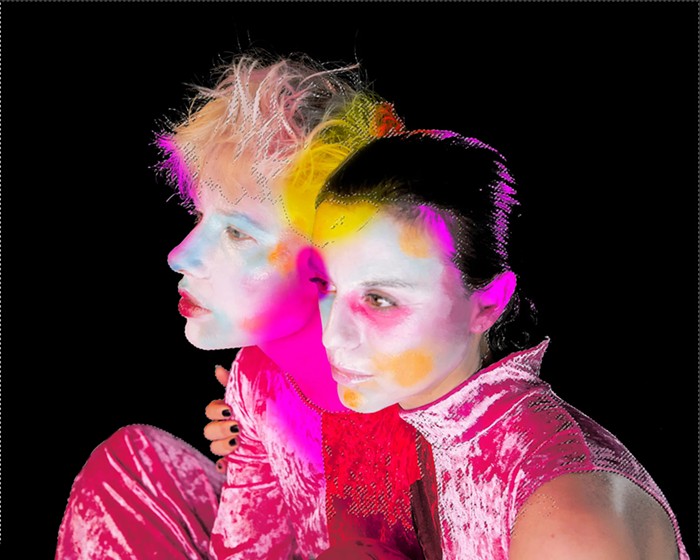Deez Yellow Swans' existence has coincided with a seeming insurgence of noise music in popular indie culture. Has this been a primarily positive trend or are there now a glut of noise-music sucker MCs?
PETE SWANSON: I think it's been [partially] a positive thing, but some things have been diminished due to the growing popularity of abstract music. On the plus side, there's the growing ability for weirdo bands to be sustainable—for folks to pay for practice spaces, to not lose money on tour, to be able to get shows at all, which wasn't the case even five years ago. There's also been a great network established for the distribution of completely obscure releases by even more obscure bands. And a good deal of respect has been given from a lot of media outlets, which has sort of established oddball stuff as being more valuable than it was considered previously. All that is great. The flip side is that there are ONE MILLION noise acts now, which is overwhelming, and the majority of them are not extremely interesting. Another thing that's occurred is this fragmenting of noise into tiny subgenres.
GABRIEL MINDEL SALOMAN: Ultimately, I believe that listening to and playing noise music is a real step in the evolution of consciousness, and whether it leads to financial or social success is hardly as important as that.
Your first two "proper" full-length releases, Bring the Neon War Home (Narnack) and Psychic Secession (Load), both dealt with personal agency and engagement with more massive cultural energies. Do you feel like your new record, At All Ends (also on Load), does as well?
PETE: I think At All Ends continues that thread. Over the course of the records, the lyrical content has gone from a vague antiwar narrative to a more assertive narrative of personal resistance to oppressive constructs. This last album is sort of about combating the absurdity of the perpetual end of humanity. It seems like we've been on the verge of a species-wide meltdown since time began. I've had a lot of friends completely obsessed with the end of the world, and, well, there's this quote from Stanislaw Lec, "Don't expect much from the end of the world," which I find totally hilarious. Basically, the album has a cyclical theme—as a culture and as individuals, we're coping with our own mortality constantly; we go through these cycles of panic and resolve. It's so silly on some level— extremely self-centered and infantile, but ultimately understandable. On an animal level, we are wired to want to continue the family line and there's nothing more counter to that than the apocalypse.
It seems like some bands certainly extend themselves further than they should while others (like, say, Boredoms) continue to make new and wonderful music for decades. How do you regard the soon-to-be Departed Yellow Swans in these terms?
PETE: I think we managed to cram a lot of different ideas into a relatively short existence. By the time we're done, we will have basically been a band for seven years and spanned almost the entire Bush administration. We've successfully realized a lot of different approaches and I honestly feel like we've worked through a lot more ideas than most bands do in 20 years. Hopefully some of our music will remain vital for a while.
What do you hope to do with your collective and respective musical futures? Do you foresee a Jay-Z-style return from retirement in a few years?
PETE: I've just started a new record label, Freedom to Spend, which I'm focusing a lot of energy into right now. I'm working with some completely unknown, extremely odd bands, and I'm hoping that I can help them with booking tours and getting them press. As for a YS reunion, I wouldn't count on it.
Bonus question: Do you feel there is ever a time, artistically speaking, when keeping it real goes wrong?
GABRIEL: I can look at someone like Genesis P-Orridge or Merce Cunningham or Ornette Coleman and say that some of the choices they made were pretty cringe-worthy, and yet as a whole they have an artistic life that I greatly admire. I don't suppose that making art without any concern for what people think is possible, but if you're speaking your truth, you are unimpeachable. You may lose your audience, but there is no shame in that. You have your own life to be accountable for and not much else.
PETE: There are too many reals to keep and too many wrongs to endure. If you're talking about not compromising your vision, if you even have one to begin with, any artist should realize that the more individualized your music is, the more marginal you will be. An artist has to be prepared to compromise or exist in obscurity or somewhere in between. On some level, making your art available to anyone is a compromise. As an artist, you will perceive a reaction from those engaging in your work and that will inform your future endeavors whether you like it or not. For this band, I think a lot has been compromised. A lot of the compromises have produced great successes artistically and logistically. Some have been completely stifling. I'm looking forward to moving on. ![]()
D. Yellow Swans play Fri April 11 at Vera Project, 7:30 pm, $8/$7, all ages. With Iron Lung, Sissy Spacek, Blue Sabbath Black Cheer.



















